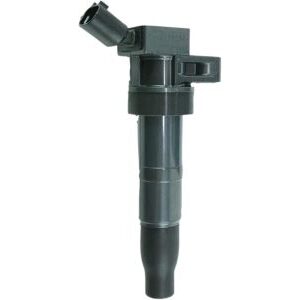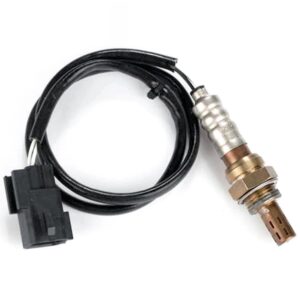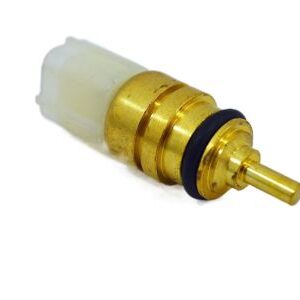**Unveiling Precision: The Crucial Role of Knock Sensors in Engine Performance**
In the symphony of automotive engineering, where power and precision harmonize, one often-overlooked component silently safeguards the integrity of the engine—the knock sensor. While engines roar with vigor, it’s the knock sensor that listens for the faintest signs of engine knock, ensuring optimal performance, reliability, and longevity. Join us as we explore the significance, functionality, and importance of knock sensors in the realm of automotive technology.
**Understanding the Essence: What is a Knock Sensor?**
A knock sensor, also known as a detonation sensor, is a specialized device designed to detect abnormal combustion events, commonly referred to as “knocking” or “pinging,” within an internal combustion engine. Its primary function is to monitor engine vibrations and acoustic signals to detect the characteristic sound frequency associated with engine knock.
**The Evolution of Engine Monitoring Systems**
In the early days of automotive engineering, engine knock was primarily monitored by experienced drivers or through mechanical devices such as knock meters. However, as engines became more complex and performance demands increased, the need for real-time monitoring and intervention grew. Knock sensors emerged as a transformative technology, enabling automatic detection and correction of engine knock to prevent damage and optimize performance.
**The Significance of Knock Detection**
In the dynamic realm of modern driving, where engines operate under varying conditions, detecting and mitigating engine knock is crucial for maximizing performance, fuel efficiency, and engine longevity. Knock sensors play a pivotal role in this regard, providing valuable feedback to the engine control unit (ECU), which adjusts ignition timing and other parameters to prevent knock and optimize engine performance.
**The Silent Listener: How Does a Knock Sensor Work?**
Despite its unassuming appearance, the knock sensor employs sophisticated technology to fulfill its role effectively. Most knock sensors utilize piezoelectric or ceramic elements that generate electrical signals in response to engine vibrations and acoustic signals.
As engine knock occurs, the vibrations and acoustic signals are detected by the knock sensor, which converts them into electrical signals. These signals are then sent to the ECU, which analyzes them to determine the severity of the knock and takes appropriate action to mitigate it, such as retarding ignition timing or adjusting fuel delivery.
**The Unseen Benefits: Advantages of Knock Sensors**
While knock sensors may operate quietly behind the scenes, their impact on engine performance and reliability is undeniable. Here are some key advantages:
1. **Prevention of Engine Damage:** Knock sensors detect and mitigate engine knock, preventing damage to engine components such as pistons, cylinders, and bearings.
2. **Optimized Performance:** By automatically adjusting ignition timing and other parameters, knock sensors ensure optimal engine performance under varying operating conditions.
3. **Improved Fuel Efficiency:** Preventing engine knock helps optimize combustion efficiency, reducing fuel consumption and emissions.
4. **Enhanced Engine Longevity:** By detecting and mitigating knock, knock sensors help prolong the lifespan of engine components, reducing the risk of premature wear and failure.
**Looking Ahead: Innovations in Knock Detection Technology**
As automotive technology continues to advance, so too will the field of knock detection technology. Innovations in knock sensor design, materials, and integration with engine management systems may lead to even more precise and efficient knock detection solutions in the future. Furthermore, as vehicles transition towards electrification and alternative powertrains, knock sensors will continue to play a crucial role in optimizing engine performance and efficiency.
**In Conclusion: The Guardian of Engine Integrity**
In the dynamic world of automotive engineering, where every combustion is meticulously controlled, knock sensors emerge as silent but indispensable guardians of engine integrity. Their unassuming presence belies their critical importance in ensuring optimal performance, reliability, and longevity. So, the next time you feel the smooth power and responsiveness of your vehicle, remember to thank the unsung hero working diligently behind the scenes—the knock sensor.
Only 5 left in stock (can be backordered)
$18,926.31
**Unveiling Precision: The Crucial Role of Knock Sensors in Engine Performance**
In the symphony of automotive engineering, where power and precision harmonize, one often-overlooked component silently safeguards the integrity of the engine—the knock sensor. While engines roar with vigor, it’s the knock sensor that listens for the faintest signs of engine knock, ensuring optimal performance, reliability, and longevity. Join us as we explore the significance, functionality, and importance of knock sensors in the realm of automotive technology.
**Understanding the Essence: What is a Knock Sensor?**
A knock sensor, also known as a detonation sensor, is a specialized device designed to detect abnormal combustion events, commonly referred to as “knocking” or “pinging,” within an internal combustion engine. Its primary function is to monitor engine vibrations and acoustic signals to detect the characteristic sound frequency associated with engine knock.
**The Evolution of Engine Monitoring Systems**
In the early days of automotive engineering, engine knock was primarily monitored by experienced drivers or through mechanical devices such as knock meters. However, as engines became more complex and performance demands increased, the need for real-time monitoring and intervention grew. Knock sensors emerged as a transformative technology, enabling automatic detection and correction of engine knock to prevent damage and optimize performance.
**The Significance of Knock Detection**
In the dynamic realm of modern driving, where engines operate under varying conditions, detecting and mitigating engine knock is crucial for maximizing performance, fuel efficiency, and engine longevity. Knock sensors play a pivotal role in this regard, providing valuable feedback to the engine control unit (ECU), which adjusts ignition timing and other parameters to prevent knock and optimize engine performance.
**The Silent Listener: How Does a Knock Sensor Work?**
Despite its unassuming appearance, the knock sensor employs sophisticated technology to fulfill its role effectively. Most knock sensors utilize piezoelectric or ceramic elements that generate electrical signals in response to engine vibrations and acoustic signals.
As engine knock occurs, the vibrations and acoustic signals are detected by the knock sensor, which converts them into electrical signals. These signals are then sent to the ECU, which analyzes them to determine the severity of the knock and takes appropriate action to mitigate it, such as retarding ignition timing or adjusting fuel delivery.
**The Unseen Benefits: Advantages of Knock Sensors**
While knock sensors may operate quietly behind the scenes, their impact on engine performance and reliability is undeniable. Here are some key advantages:
1. **Prevention of Engine Damage:** Knock sensors detect and mitigate engine knock, preventing damage to engine components such as pistons, cylinders, and bearings.
2. **Optimized Performance:** By automatically adjusting ignition timing and other parameters, knock sensors ensure optimal engine performance under varying operating conditions.
3. **Improved Fuel Efficiency:** Preventing engine knock helps optimize combustion efficiency, reducing fuel consumption and emissions.
4. **Enhanced Engine Longevity:** By detecting and mitigating knock, knock sensors help prolong the lifespan of engine components, reducing the risk of premature wear and failure.
**Looking Ahead: Innovations in Knock Detection Technology**
As automotive technology continues to advance, so too will the field of knock detection technology. Innovations in knock sensor design, materials, and integration with engine management systems may lead to even more precise and efficient knock detection solutions in the future. Furthermore, as vehicles transition towards electrification and alternative powertrains, knock sensors will continue to play a crucial role in optimizing engine performance and efficiency.
**In Conclusion: The Guardian of Engine Integrity**
In the dynamic world of automotive engineering, where every combustion is meticulously controlled, knock sensors emerge as silent but indispensable guardians of engine integrity. Their unassuming presence belies their critical importance in ensuring optimal performance, reliability, and longevity. So, the next time you feel the smooth power and responsiveness of your vehicle, remember to thank the unsung hero working diligently behind the scenes—the knock sensor.
| Weight | 0.06 kg |
|---|---|
| Warehouse | Inventory at warehouse 2 |




Get E-mail updates about our latest products and special offers.
Sensors and More is Jamaica’s ultimate online auto parts store. Established in 2020, we specialize in genuine electrical parts for Japanese, Read more…
Reviews
There are no reviews yet.